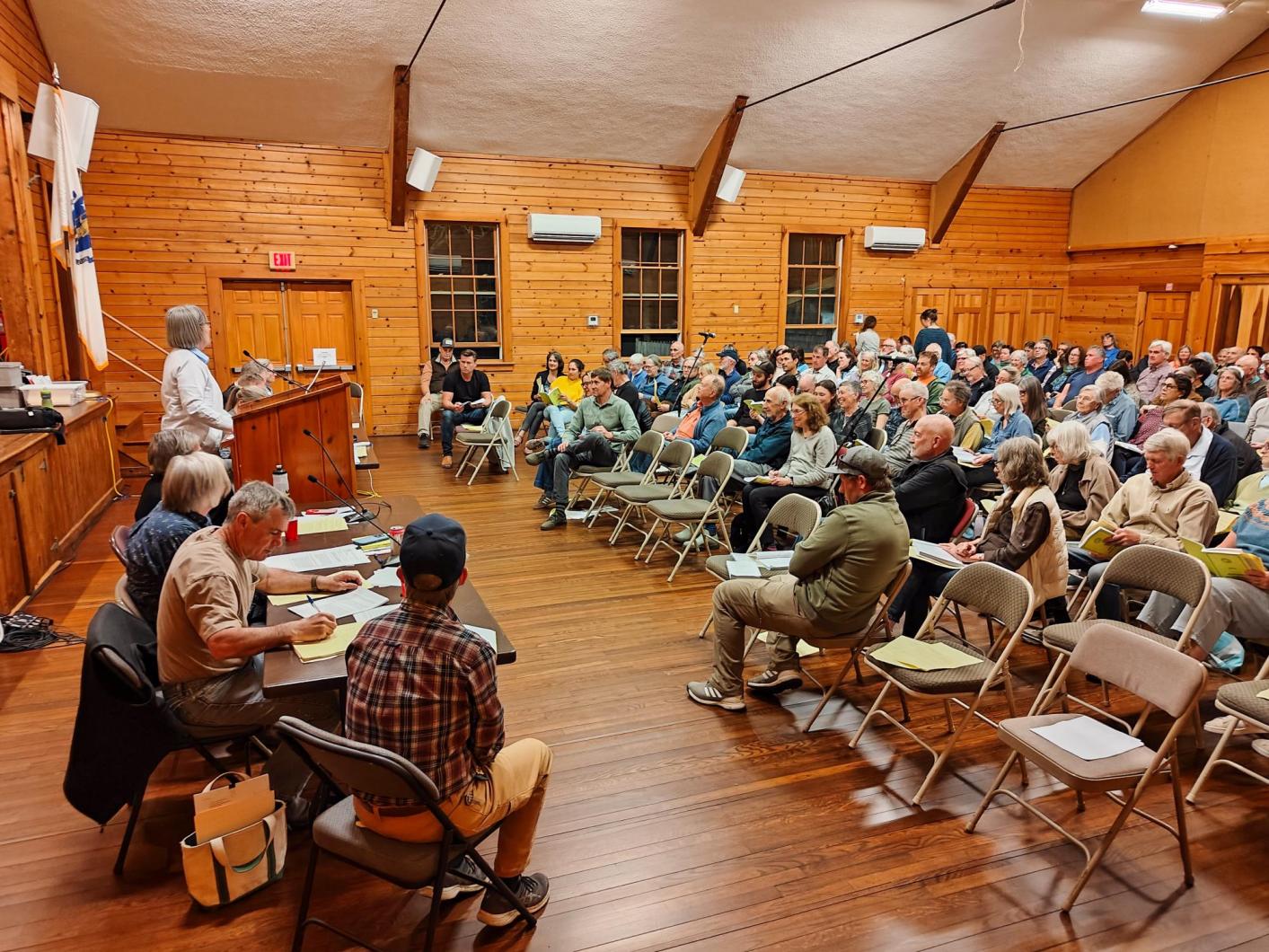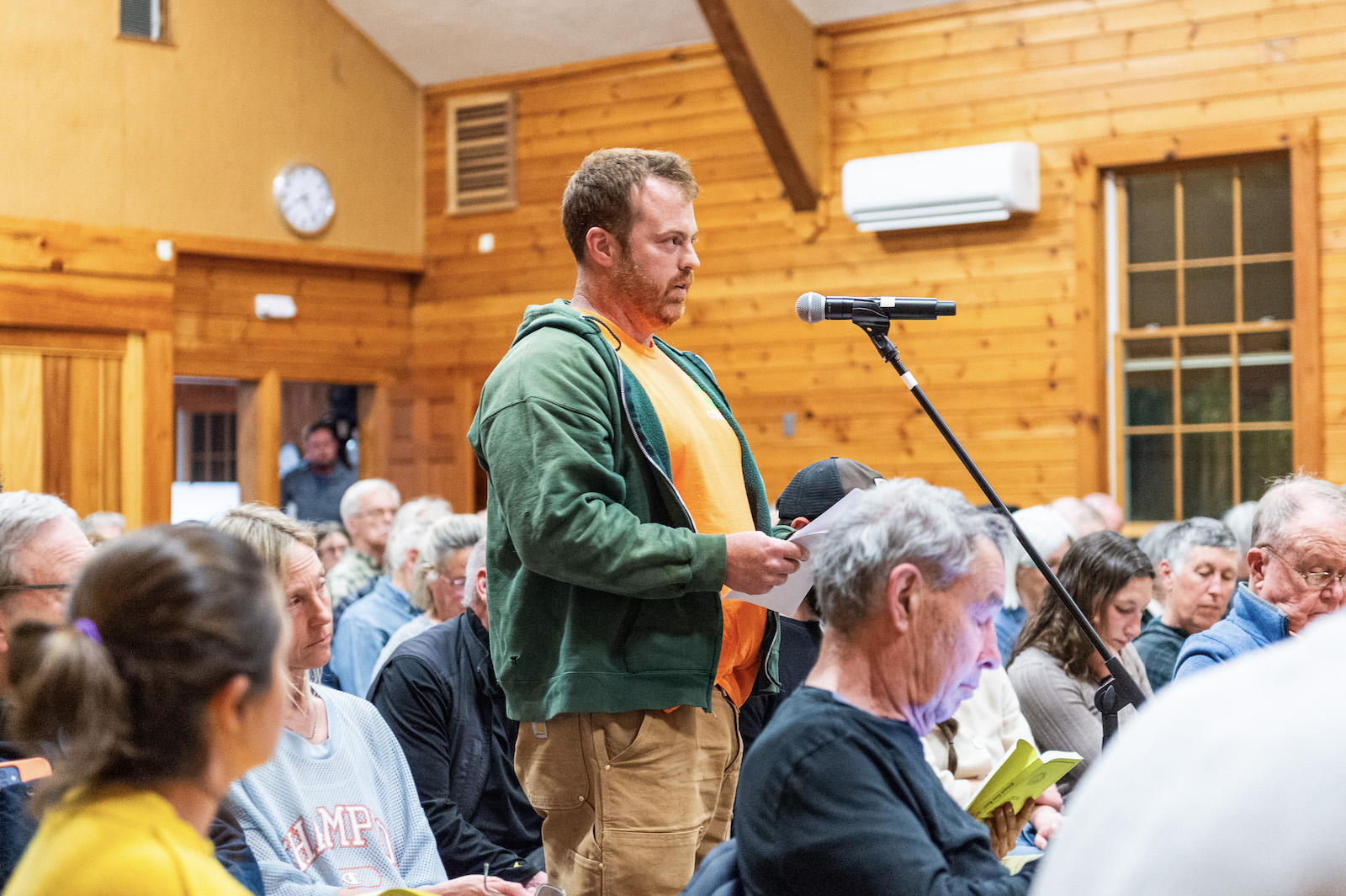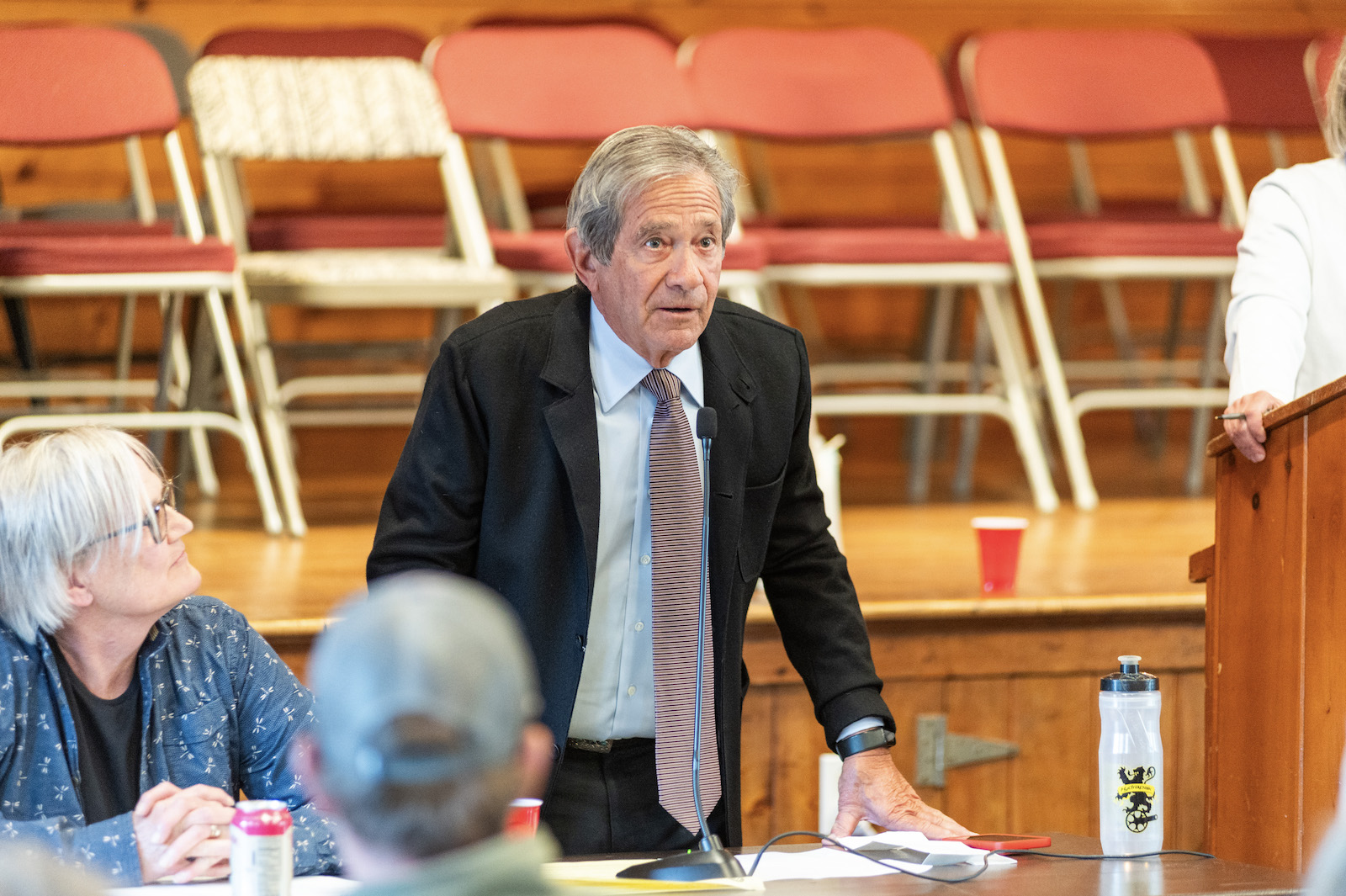Chilmark voters approved restrictions on leaf blowers and gave initial approval for overrides totaling nearly $750,000 at the annual town meeting Monday evening.
A quorum of 184 voters also approved the budget of $15.3 million, which is approximately a 6 per cent increase from last year.
Following Edgartown, Oak Bluffs and West Tisbury, Chilmark approved a bylaw limiting the use of leaf blowers. Under the new rules, gas-powered leaf blowers will be phased out over the next three years. But, in a change from the other towns, the bylaw will only apply to commercial contractors.
The decision to not impose restrictions for residential uses was one of three amendments to the bylaw that were approved on the floor during the three-hour meeting Monday. Voters also decided to loosen the limits on electric-powered blowers, and define what a commercial contractor is.
Landscaper and town voter Zach Coutinho raised all three amendments during the hour-long discussion of this article. He argued that it’s unfair to ask a homeowner to abide by these guidelines
“For most homeowners that use a leaf blower, I feel like you can’t tell them when they can and can’t use a leaf blower,” he said. “Ninety-eight per cent of the issues brought up by this group are by commercial contractors like myself, so I feel that maybe we should regulate us more than we should regulate the people of Chilmark.”
Voter Matt Poole spoke in favor of amending the article to apply to just commercial contractors.
“[Zach is] a professional lawn care provider,” he said. “He’s willing to regulate his industry. He’s looking to allow homeowners to continue to use the equipment that they currently own, and it seems to make a lot of sense.”
Under the new bylaw, gas-powered leaf blowers will be phased out by June 2028. The bylaw also lists specific times and seasons when these leaf blowers can be in use.
In the original bylaw, electric-powered leaf blowers were subject to restrictions such as a decibel-level limit and requirement for mufflers and extension tubes based on the manufacturer’s labels. Those rules were pulled from the bylaw after Mr. Coutinho said that manufacturers across the industry aren’t always cohesive in their definitions.
“I feel like we should allow the electric blowers a little bit of leeway here, because you want people to convert to them faster,” he said. “I just feel that that’s probably a little bit too soon to do anything with that, and they might come up with more technology down the road.”
The amended bylaw was passed unanimously, and a second article on the use of leaf blowers that had slight variations from the first was pulled on the floor by town administrator Timothy Carroll.
Proposition 2 ½ overrides involving funding of the schools passed, contingent on results from town elections on Wednesday.
The overrides cover rising costs throughout the school district, according to Robert Lionette, the Chilmark member of the up-Island regional school committee. Two overrides relating to the Up-Island Regional School District and the Martha’s Vineyard Regional High School totaled approximately $541,000. A $200,000 dedicated to capital repairs at the Chilmark and West Tisbury schools included removing the bell tower at the Chilmark school.
Chilmark School principal Kate Squire acknowledged the history of the bell tower, but said that in her research, the cost to repair it would be almost twice the price of removing the tower.
“I look at this project, while iconic to the building and its history, [it is] very far removed from actual education. It doesn’t touch student learning at all,” she added. “As a steward of the Chilmark School, when I ask for a significant amount of money, I will always ask for something that is very close to student learning.”
Numerous Community Preservation Act (CPA) funds were approved for projects around Chilmark and the Island, including a $100,000 article to restore and preserve the Little Lady — the oldest remaining western-rig fishing dragger that is still in operation in New England.
Little Lady owner Dennis Jason voiced his hope for the town’s aid to preserve the historic boat.
“We’re just looking for as much support as we can get,” he said. “The boat is almost 100 years old. It’d be nice to see it go to 200.”
A new bylaw addressing a specialized energy code and amended wording to a human resources bylaw regarding who the appointing authority is for town departments were indefinitely postponed.
The town also tackled a handful of zoning articles presented by the planning board. One bylaw addressed fractional home ownership, which prohibits such units in specific districts and is aimed to preserve the limited housing stock in town. The article passed unanimously.
“It came to our attention...that commercial entities were purchasing properties and then doing the fractional ownership or timeshare management of it, and we feel that before such a thing happens here, we should be proactive and make sure that it doesn’t happen here,” planning board chair Richard Osnoss said.
With various amendments, bylaws addressing accessory dwelling units (ADU) were passed to take a step forward to comply with state bylaws that were passed earlier this year.
One amendment passed on the floor changed the protected use ADU gross floor area to no more than 900 square feet. Building inspector Adam Petkus said he had no problem enforcing the bylaw
“[With] the language of this law, the intent is to create more housing, and I’m more than willing to work with anybody to try to do that,” he said. “We can use a little common sense to keep ourselves in legal good footing.”
At the beginning of the evening, a moment of silence was held to recognize Ronald Rappaport, who was the Chilmark town counsel for many years.
Outgoing select board member James Malkin was also honored, as incoming select board chair Marie Larsen thanked him for his nine years of service.
“Throughout his service, his mantra has been to protect the small town character,” she said. “It’s not easy preserving character in a constantly changing world. But he cares deeply about this town and the community, and he continually reminded us and everyone he worked with how important that character is to both us who live here and people who visit.”










Comments (10)
Comments
Comment policy »